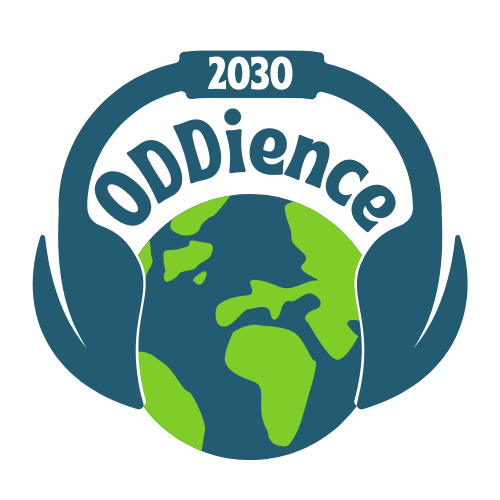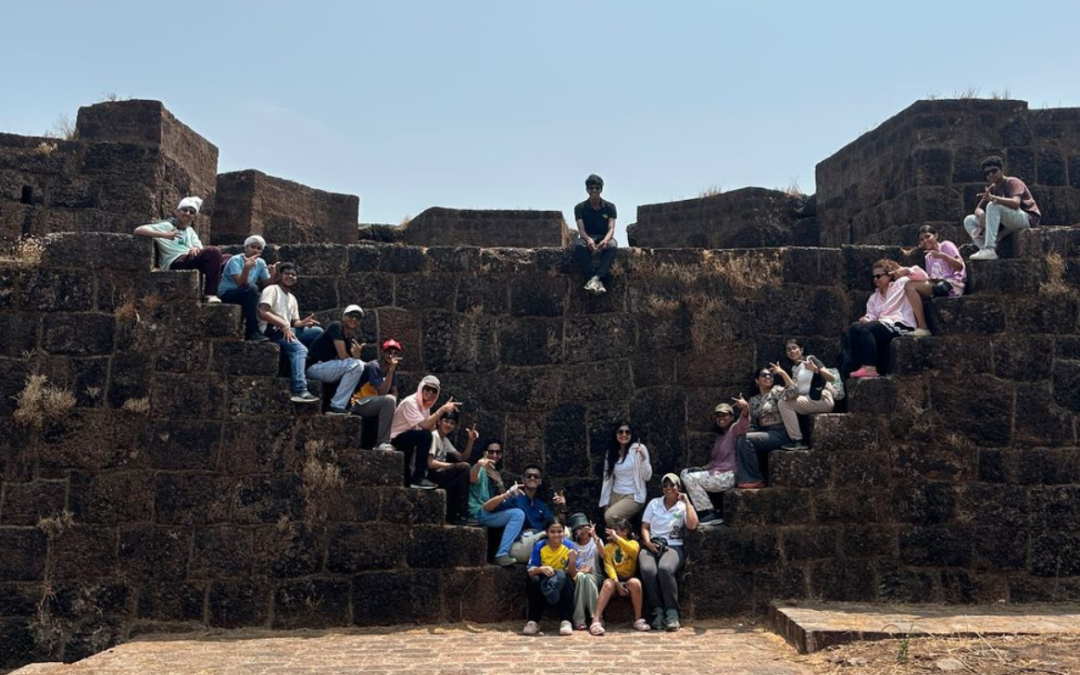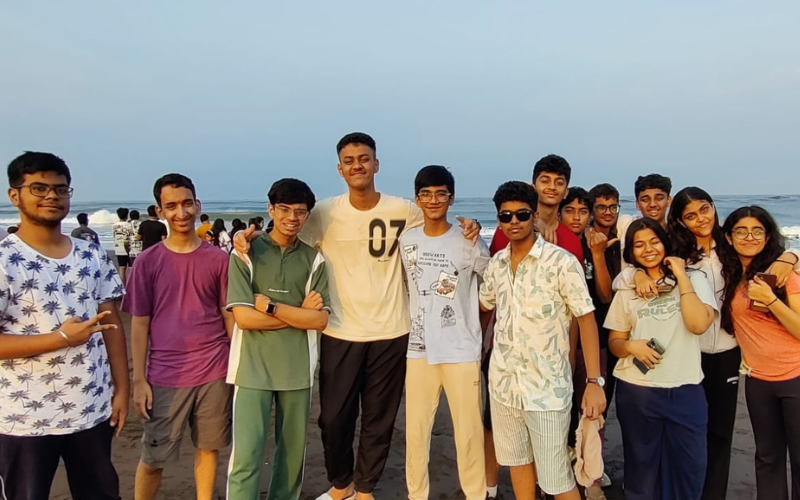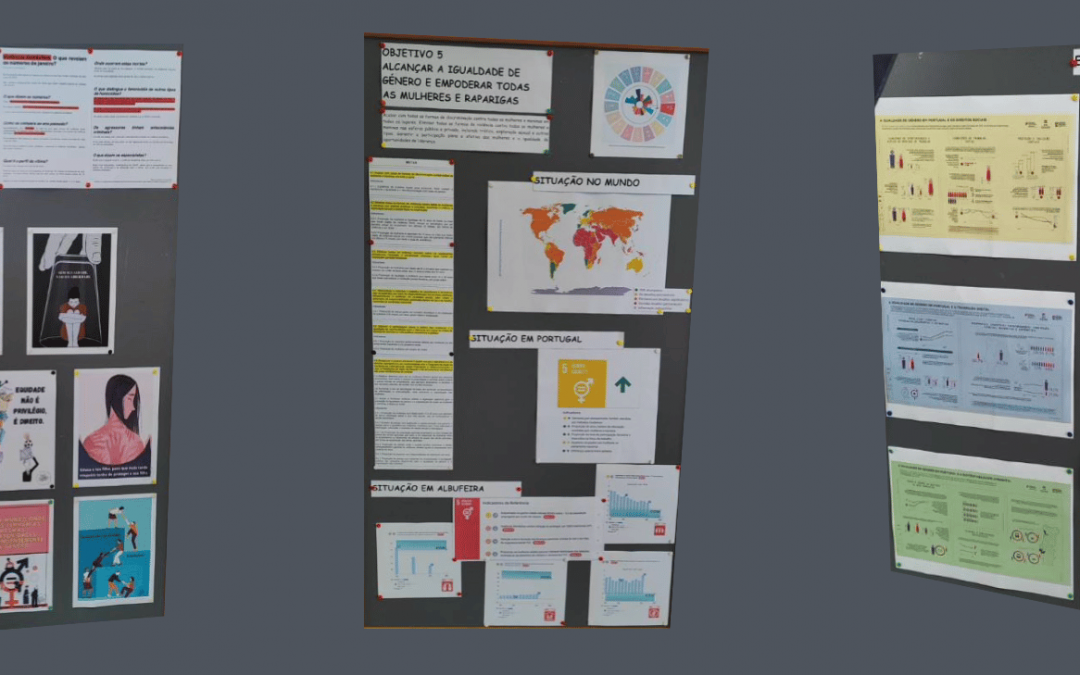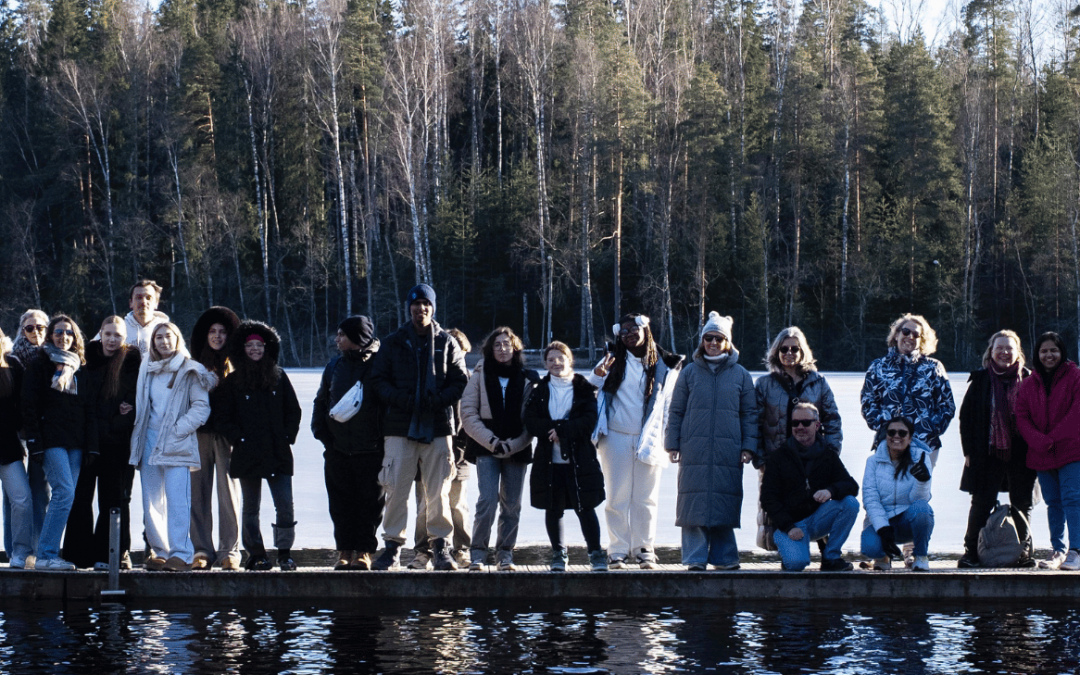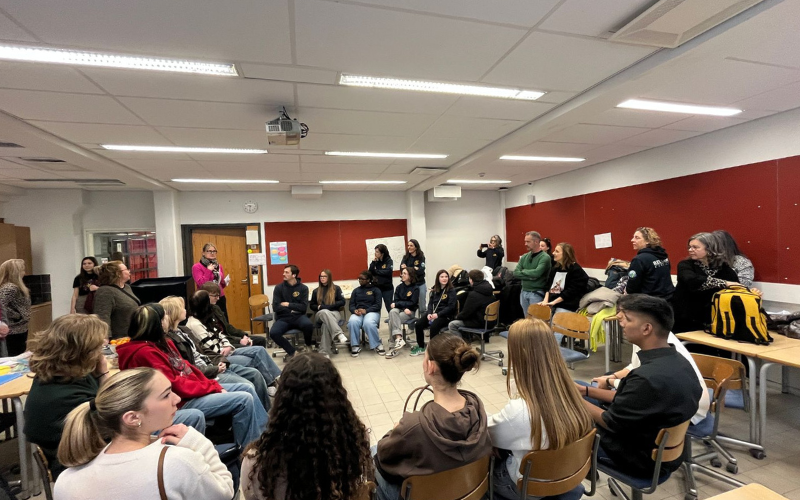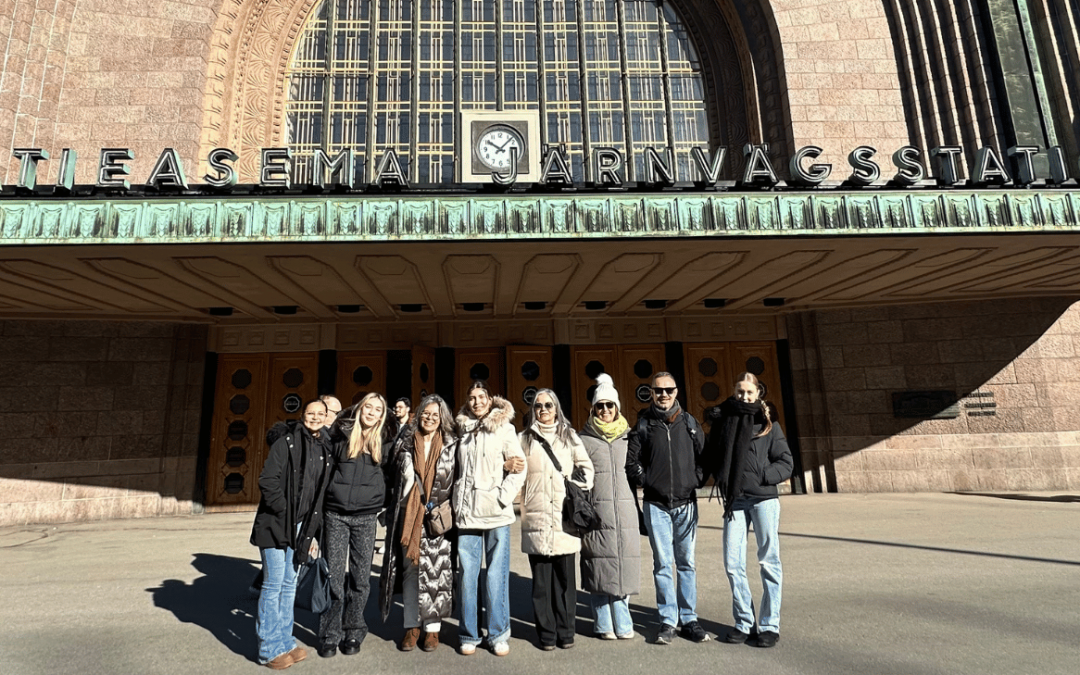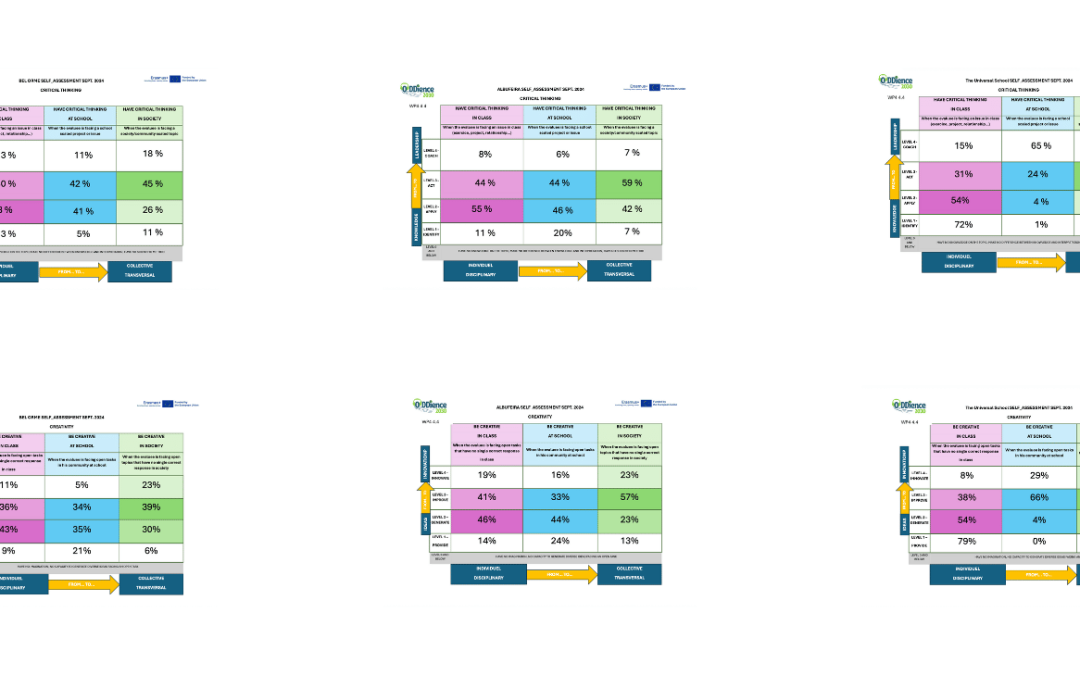
Mesure des compétences des lycéens en début de projet
Par Lucile Boncompain, Les couleurs de l’éducation, conseil et formation
Mesure des compétences des lycéens en début de projet (sept. 2024)
Une première mesure
Une première mesure des compétences des élèves en matière de créativité et d’esprit critique a été réalisée en septembre 2024. Il s’agit d’une évaluation de départ permettant de constater le niveau de compétence de départ des jeunes avant qu’ils reçoivent la formation prévue dans le cadre du projet Oddience, sur les objectifs de développement durable et le développement de leur créativité et leur esprit critique.
Ce constat de départ a été réalisé en administrant le même questionnaire, à la même période, chez chaque partenaire du projet ODDience2030 et par auto-évaluation.
L’impact
Chemin faisant, le déroulement du projet Oddience prévoit la mesure régulière de la progression des élèves, en utilisant les mêmes grilles sur la créativité et l’esprit critique, construites par les partenaires. Sur les mêmes groupes d’élèves, l’écart de résultats permettra une mesure de l’impact du projet sur les compétences des élèves et sur ces deux soft skills ciblées.
L’analyse permettra de situer également ce qui, dans les pratiques enseignantes, constituent des freins ou des accélérateurs dans l’acquisition de ces deux compétences.
Analyse des évaluations de départ
Les résultats montrent que les élèves des établissements partenaires s’auto-évaluent selon des tendances proches en France et au Portugal et selon des tendances tout à fait différentes en Inde.
- En France et au Portugal, les élèves ont tendance à se considérer moins créatifs, faisant preuve de moins d’esprit critique et de plus faible niveau, en contexte classe ou école, par rapport à leur niveau à l’extérieur de l’école.
- Concernant leur créativité, les élèves français et portugais s’autoévaluent majoritairement soit de niveau 2, soit de niveau 3, selon des équilibres plutôt équitables entre ces deux niveaux intermédiaires.


- Concernant leur esprit critique, les élèves français et portugais s’autoévaluent majoritairement au niveau 2 en classe alors qu’ils se situent dans le même temps majoritairement de niveau 3 à l’extérieur de l’école. Au niveau de l’école, leur distinction entre niveau 2 et 3 est moins significative.
- Concernant le plus haut niveau de la grille, le niveau 4, les étudiants français s’y situent très peu en contexte classe et école, tout autant en termes de créativité que d’esprit critique.
- Concernant le plus haut niveau de la grille, le niveau 4, les étudiants portugais s’y situent plus que leurs homologues français en termes de créativité et moins en termes d’esprit critique.


- Concernant l’Inde, les élèves s’auto-évaluent en matière d’esprit critique et de créativité selon des tendances beaucoup plus définies que la France et le Portugal et selon le type de soft skills :
- La tendance principale des élèves indiens en matière de créativité se situe en niveau 3.
- La tendance principale des élèves indiens en matière d’esprit critique se situe en niveau 4.


